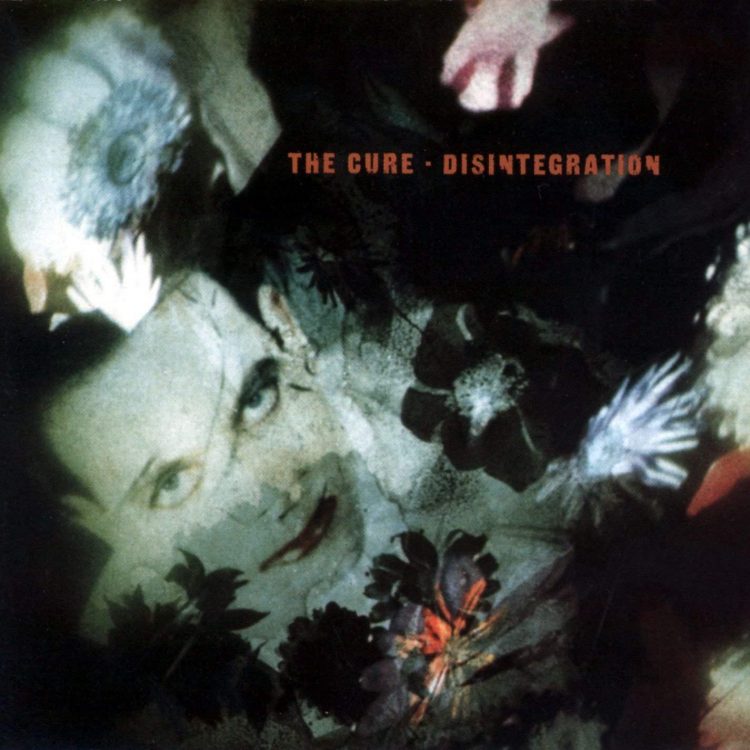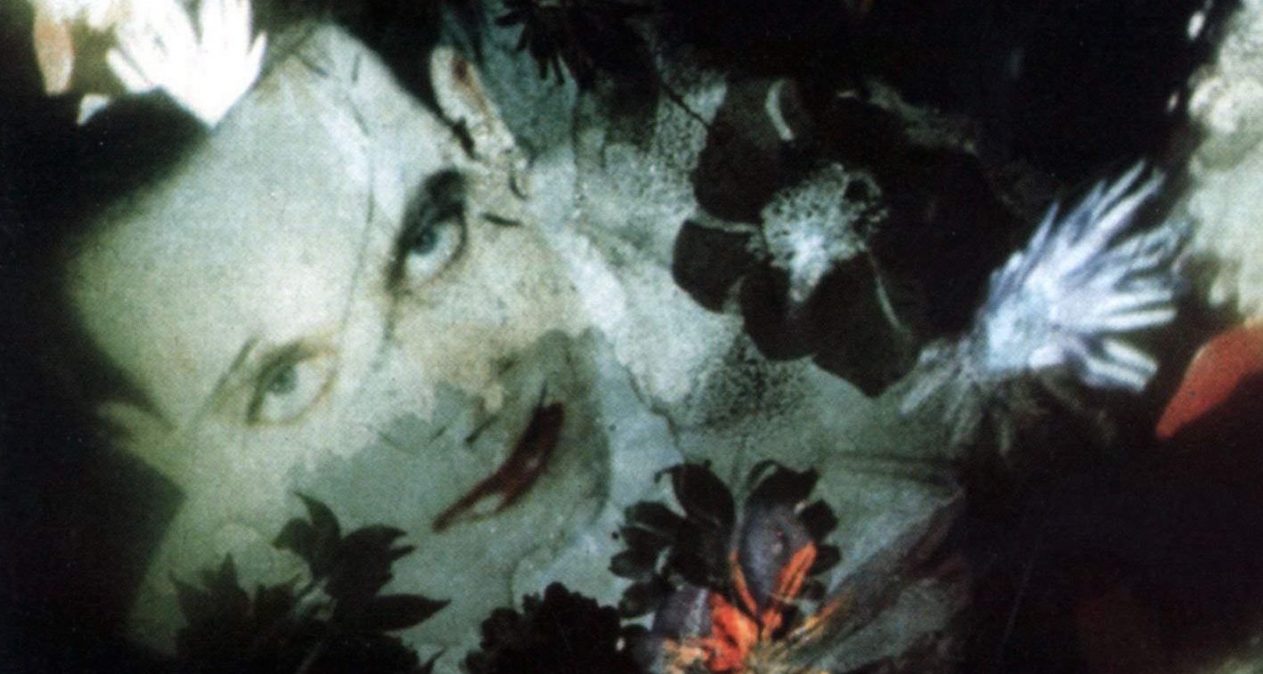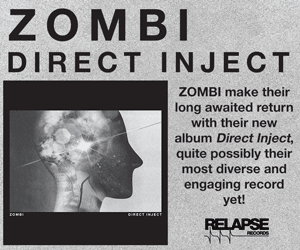It is impossible to give Disintegration a proper introduction without resorting to all manner of hyperbole. There’s the informational bits, that The Cure’s eighth album just kissed its twenties goodbye, much in the same way The Cure’s singer, lead guitarist and figurehead Robert Smith did when writing the album in 1989. Much has been said in these last few celebratory weeks for what is, in my irrelevant opinion, the anniversary of the magnum opus from rock music’s most important band. The point is that Disintegration, despite its earthly origin, its aural tangibility, is an otherworldly yet empathic creature.
Disintegration first crossed my path by way of my father, whose Generation X sensibilities exposed me to the best alt-rock the 80s and 90s had to offer. Smashing Pumpkins. Nirvana. Peter Gabriel. Modern English. Jagged Little Pill. If it was ever cool then, my dad played it. The Cure was, obviously, among the selected. It wasn’t until junior high, when I began raiding elder Bruce’s expansive CD collection, that my exposure to The Cure began in earnest. Somewhere over the years his copy of Disintegration disappeared, leaving me to consume the manic eclecticism found on The Head on the Door and Kiss Me, Kiss Me, Kiss Me.
Both albums are exemplary of all The Cure can do, but not of what they do best. The giddy, sticky-sweet pop offered by those albums is timeless, don’t get me wrong, but The Cure seem best remembered for their darker entries. It is within those shadows, next to the minimalist Faith and the excoriating Pornography, that Disintegration finds itself mislabeled, a point I’ll touch on soon.
It wasn’t until one day after high school, while perusing my local Newbury Comics, that I once again stumbled upon Disintegration. I wasn’t looking for it, only for a good The Cure album (it was this or Pornography), but it was its cover, with Smith, alluring beneath a floral mosaic, that magnetized me. It’s between Pornography’s crimson blurs and Kiss Me, Kiss Me, Kiss Me’s puckering close-up, that Smith, The Cure’s cult of personality, is enshrined for the first time. On purpose or sheer accident, Smith crafted a work that married The Cure’s definitive gothic sensibilities with the outrageous pop they once made to counter their own darkness. It’s by that virtue, those equal parts gloom and bloom, that Disintegration shines as the sum of all The Cure has achieved in their near 45 years.
You ever had your hearing pulverized by wind chimes? Listen no further than “Plainsong,” the best album opener ever. Its glimmering synth walls are at once ethereal and impenetrable, with only Smith’s existential croons able to pierce its blaring dusk. The vocals are served cold, issued over the inviting expanse, as if calling to a lover on an opposing shore. This sedate mood is tempered by Boris Williams’ spatial snare, with each hit rolling over you like a wave of molten velvet. The tender, dreamy melodies imbue this pastel void with just enough humanity to keep it all anchored to reality. In short, music was invented for the ultimate purpose of creating “Plainsong.”
Their perfect gloom-bloom moment comes in the form of “Lovesong,” their highest stateside charter and that one song 311 fucked up in 2004. Its title says it all, of all The Cure’s infatuated anthems, “Lovesong” is the only one that doesn’t come with a fine print warning, lyrically-speaking. Not even the splendorous “Just Like Heaven” can make such a boast. This is all romance, sweet and simple. Despite “Lovesong’s” on-paper simplicity, its complexity is found in the listen. Smith’s delivery is forlorn. Simon Gallup’s playful bass meanders amid the sweeping romance of Smith and Pearl Thompson’s guitar play. Roger O’Donnell’s funereal keyboards carry the song like pallbearers en route to a wedding. It’s all so simple, yet so masterful, you can’t help but listen in awe.
“Lullaby” is “Lovesong’s” predatory shadow. Smith is at his unnerving best, whispering his insidious lyrics beneath the arrangement’s staccatoed icy heartbeat. There is a unique restraint here, the lushness pared down, replaced with a creeping hush that bleeds into each spindly note. The accompanying music video, which features Smith in all manner of nightmarish precariousness, is no less bizarre. Where “Lovesong” is naked emotion, “Lullaby” is a cloak and dagger affair, striking in secret, its intent open to interpretation.

Smith reached his lyrical peak with the massive title track, weaving allusion into metaphor into wordplay with dizzying skill, all while issuing emotional sucker punch after sucker punch. Seriously, read the sixth verse, Smith is in a master class all his own. This says nothing of this vicious epic’s breathless, glass-shattering cadence. Smith is an acrobat poet, leaping from verse to verse with cat-like reflexes, each word more sure-footed than the last. Gallup’s bass, always the star of its own show, is the pillar the song is built around, a monolith unbending to the fluid wrath of the larger arrangement. The Cure achieve an openness that few artists dare attempt, leading to an exhaustive, heart-crushing listen.
I’ve been wanting to write even a paragraph about Disintegration for ages, and I’m certain, as far as what I’ve wanted to articulate, will fall short of my expectations. Yet the meat of this celebratory piece, aside from my unfocused affections regarding my favorite songs, is how this album has made me, and countless others, feel at heart. Six years ago, I met my husband, and though our music tastes are at once akin and dissimilar, the one record our own collections each had a copy of was Disintegration. Serendipitous, sure, but this LP has indeed become an enduring anecdote of the relationship.
It’s in such anecdotes where works like Disintegration show their importance, their affecting, prodigious thrall. For as dark and brooding as some find these 12 songs, I found comfort in its twilight gardens. Between depressive and manic states, to simple bouts of loneliness, this album has offered an illusory crying shoulder. It was in those moments that Disintegration’s solitude became my catharsis, a personal heaven where, if only for a moment, I could feel whole again.










